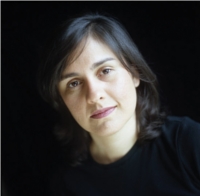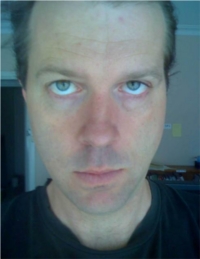Blog Archives
Hensher, Shamsie, Naparstek

Philip Hensher
It’s a potent combination, even if you discount the Liner Notes-induced head fuzz. Philip Hensher and Kamila Shamsie sat down this morning with Ben Naparstek to ‘have a little chat to each other’ about history as a basis for fiction writing.
For Shamsie, there are two types of people — those who have the ‘luxury of believing that their lives are separate from history’ and those who know that this isn’t the case. Discovering history is a way of building character — she had created a minor character, a Japanese woman, and became interested in searching for the ‘truth about women in Japan’, not the ‘idea of the demure Japanese woman’. But you’ll have to write a while for her ‘Pakistani science-fiction novel’. Sometimes historical fact gets in the way of beautiful fiction: Shamsie once wrote a scene featuring riotous beds of azaleas, but she discovered that at the time the scene was set, Nagasaki was going through a food shortage and in reality all the flowerbeds had been pulled out and replaced with vegetables.
Philip Hensher suggested, rather wickedly, that ‘people use “history” to refer to any event of significance’. He then riffed about

Kamila Shamsie
some of his own rather dubious encounters with ‘history’, such as the time he saw the Queen on the street: ‘I love the Queen, I think she’s marvellous’. Hensher thinks that most historical fiction focuses on the situation’s ‘innocent bystander’: ‘If you look at most great novels about historical events, they’re not about the main actors in those events.’ Great figures are difficult to get into a novel because the reader already knows too much about them. But Hensher also has some special plans for the Prime Minister: ‘I would love to write a book about Gordon Brown in retirement.’
Estelle Tang, 3000 BOOKS
Festival Blogger

